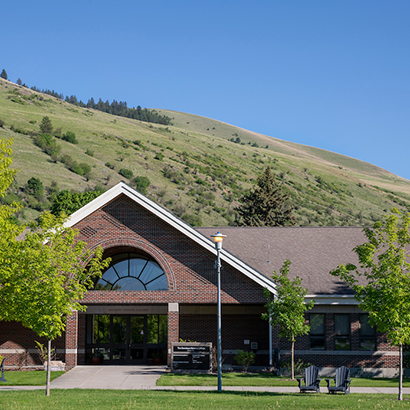Experiential Learning
Exceptional opportunities for experiential education are a strength of a University of Montana experience. All students at the University of Montana are encouraged to take advantage of the rich educational opportunities available outside the classroom, including study abroad, domestic field-based courses, internships, and undergraduate research.
Students in the Davidson Honors College are required to engage in one experiential learning opportunity during their undergraduate education at UM.
In order to satisfy the honors requirement, these outside-of-classroom experiences must carry at least two academic credits and students need to submit the appropriate proposal and reflection materials. Consult with your Honors College academic advisor to learn how these experiences can be counted for Honors course credit.
Explore this website to learn more about the extraordinary outside-of-classroom experiences available to students in the Davidson Honors College.
FIELD-BASED COURSES
The Flathead Lake Biological Station’s Summer Session offers immersive field ecology classes. The FLBS academic program emphasizes experiential learning through direct field-based observation and hands-on use of advanced research instrumentation in our facilities on the east shore of Flathead Lake. Summer courses spend extensive time in the field throughout the Flathead Watershed, including Glacier National Park and Northwest Montana’s “Crown of the Continent”. Courses can be taken for undergraduate or graduate credit. Gain real field experience in a research and education environment by taking a 3 credit course over two weeks or up to 13 credits over eight weeks.
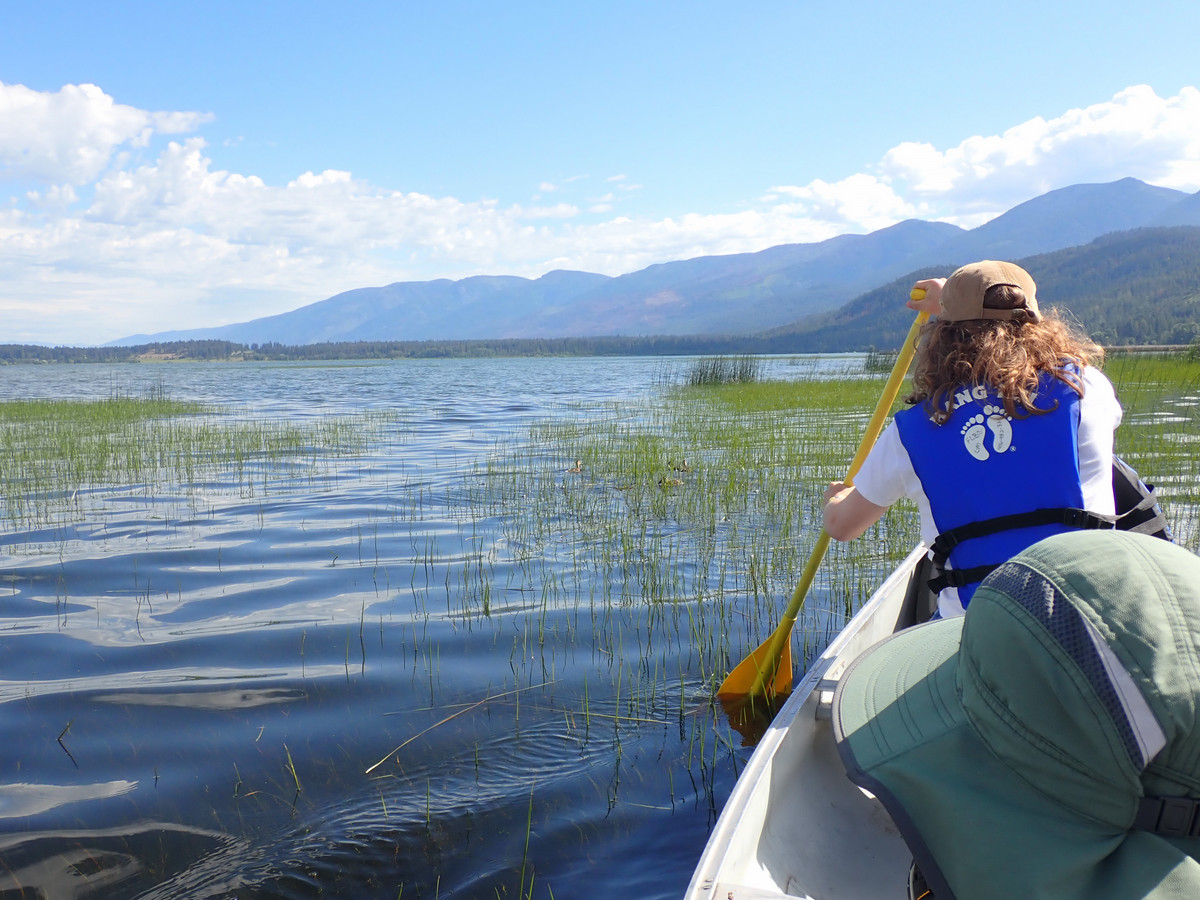
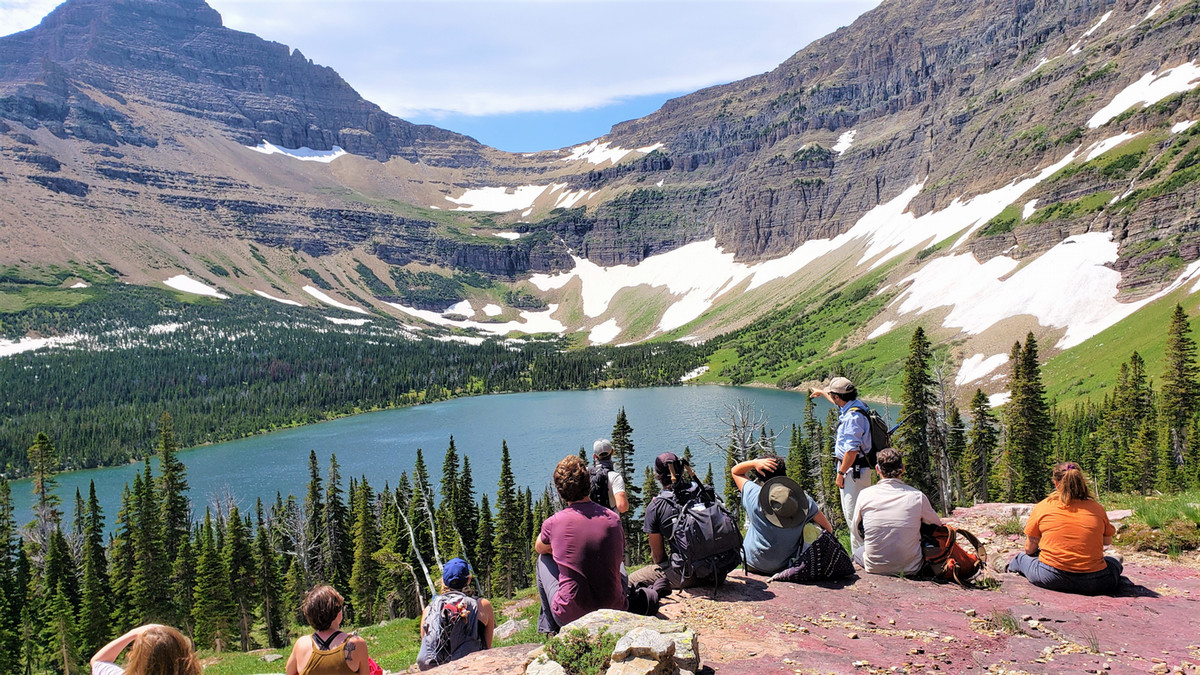
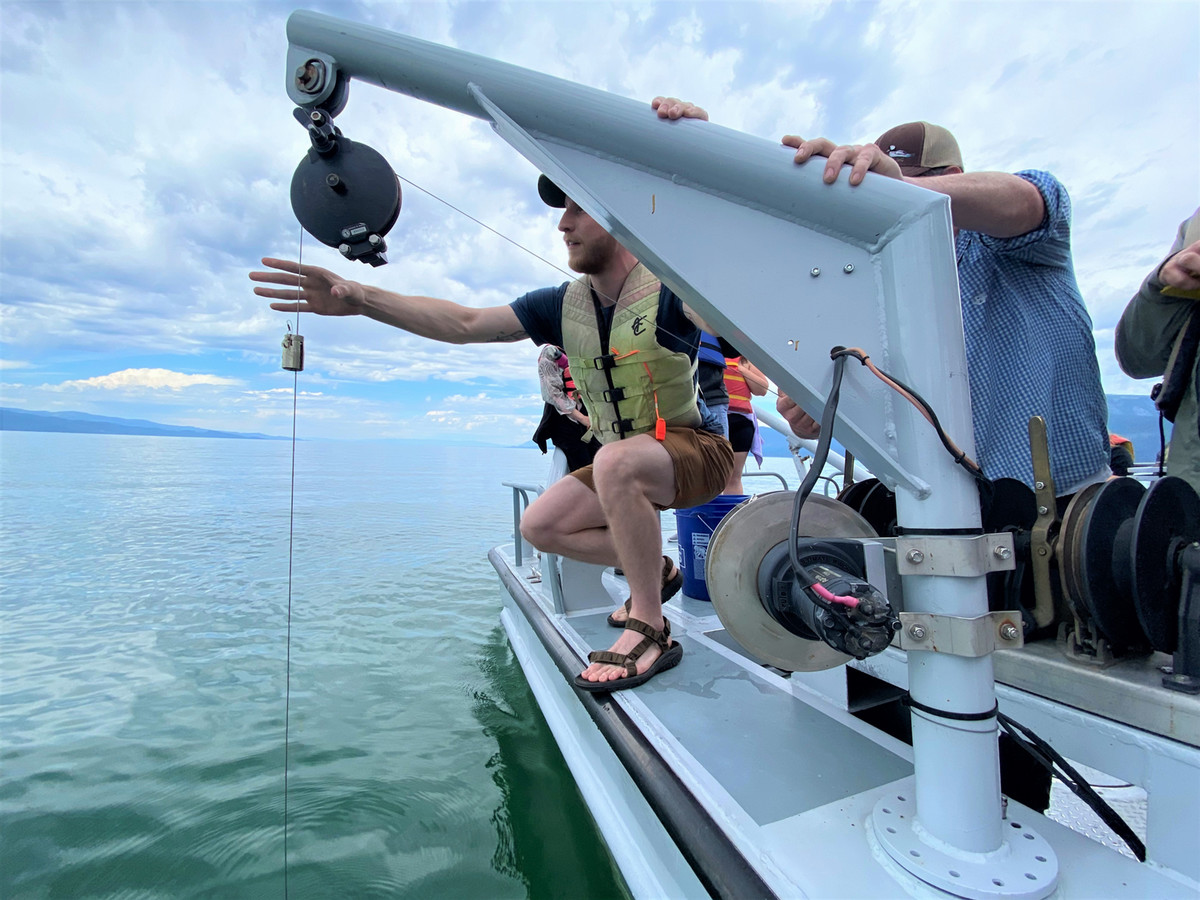
Swan Valley Connections (SVC) is a conservation and education non-profit located in Montana’s Crown of the Continent. We offer students the opportunity to study natural resource management through experience. When we aren’t teaching, our instructors are in the field researching, restoring, and working towards community-based solutions. Our conservation work forms the basis of experience from which we develop our education programs, and we believe that a deep understanding of natural history and ecological processes, combined with empathy for human communities, leads to innovative and thoughtful stewardship.
Our field programs are interdisciplinary in nature and offer a balance of learning through field work, academic readings, presentations by staff and guest speakers, conversations with various stakeholders, problem solving activities, and personal reflection. Throughout the programs students are able to network with conservation professionals throughout the West and make lasting connections.
The Crown of the Continent is an ecological crossroads where plant and animal communities from the Pacific Northwest, eastern prairies, southern Rockies, and northern boreal forests mingle. These glacier-carved mountains and valleys are also the headwaters for North America. Nowhere else on the continent retains its full complement of native wildlife - wolves, grizzly bears, moose, wolverine, elk, and mountain goats, to name a few. Rural communities and small cities have been built up around natural resource industries, tourism, and agriculture. The Crown is an example of a collaboratively managed landscape, where diverse people work together to bridge cultures, promote sustainable use, steward natural resources, and support vibrant communities. It is an enchanting landscape that easily captures hearts and minds.
Study Community-Based Approaches to Wildlife Management, Ecology of Threatened and Endangered Species, and Wildlife Policy and Rural Communities, or become certified in Wildlife Tracks and Sign or as a Montana Master Naturalist, all while earning upper-division credits from the University of Montana.
I learned so much more than wildlife science, ecology, and biology. I learned how the connection to place can be life-changing. I learned that a difference of opinion does not mean that someone is less educated, selfish, or inconsiderate. I did not just gain an appreciation for wildlife, but I also learned about human dimensions. I understood that issues related to natural resources are not just black and white. As odd as it sounds, SVC showed me how to lead a fuller life. It changed me as a whole person.
— Cassidy Williams Shelton, Wildlife in the West
Swan Valley Connections (SVC) is committed to increasing representation of people of all identities and backgrounds in conservation and outdoor education. SVC seeks to remove barriers from participating in our programs by prioritizing scholarships for underrepresented and underserved communities. Scholarships ranging from 25% to 100% of total tuition cost are available.
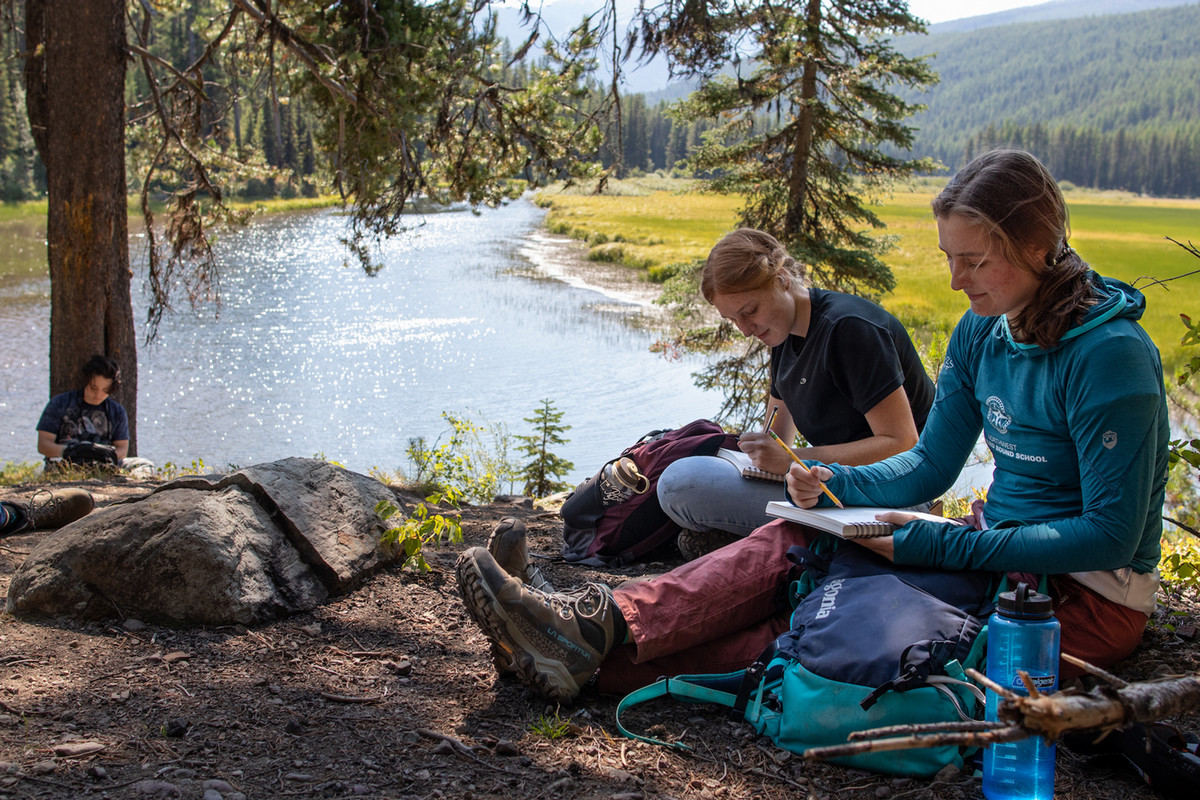
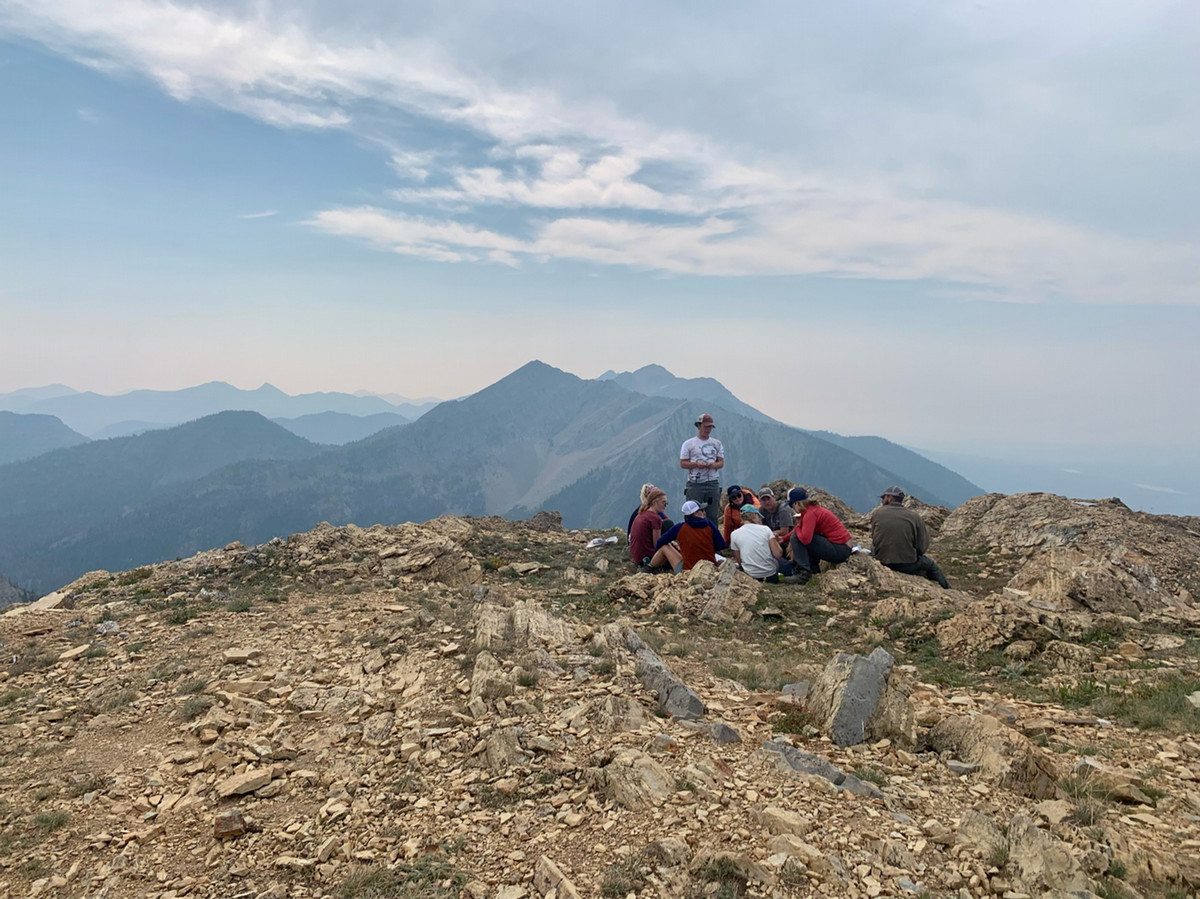
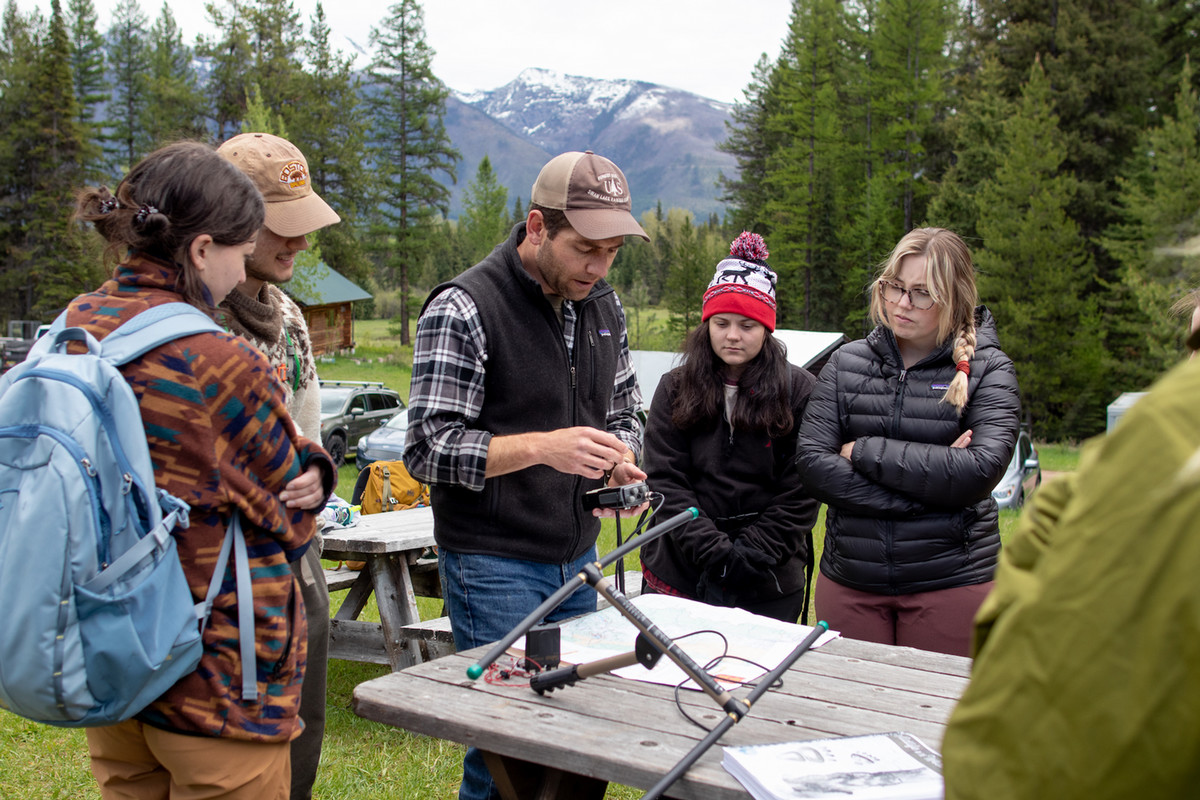
“I had never spent so long learning about a place, and WRFI helped teach me how much there is to learn and pay attention to wherever I am, without having to travel. Ever since WRFI, I've made an effort to learn about where I'm living and stay informed about local environmental issues. WRFI was a community where I felt totally accepted for who I was, which I hadn't experienced before.”
-Renne Baldwin, Colorado Plateau, 2018
The Wild Rockies Field Institute (WRFI) is a Missoula-based nonprofit organization offering academically rigorous courses for students interested in field-based environmental studies. Spring, Summer, and Fall, WRFI brings students into direct contact with environmental issues facing the communities and landscapes of the Rocky Mountain West.
WRFI courses explore the complex cultural, political and natural histories of some of the most interesting and beautiful landscapes in North America. Every WRFI course is fully accredited through the University of Montana in one or more of the following disciplines: anthropology, English, environmental studies, forestry, geography, Native American studies, studio art, and science. WRFI cohorts consist of students from universities across the country, resulting in a diverse mix of people, perspectives, and origins.
All WRFI courses count for Honors credits toward Davidson Honors College graduation requirements and “Experiential Learning” requirements. For people interested in how WRFI students balance their academic work in outdoor settings, the WRFI blog (www.wrfi.net/blog) showcases student perspectives on the issues they’re learning about. Since WRFI courses are interdisciplinary in nature, the credits students receive often overlap with other majors, minors, and certificates.
WRFI courses are designed to take students into the arenas where the subject matter they are studying – from ecology to contemporary resource management policy – unfolds before their eyes. By integrating traditional academics with field studies, service projects, and meetings with government officials and community members, we encourage creative and critical thinking, thoughtful dialogue, and exploration of diverse perspectives. And by connecting students with human communities and the natural environments in which they are embedded, our courses help students develop a personal land ethic and a powerful sense of place.
WRFI actively engages with their alumni community as well, connecting alumni with job and internship opportunities, and each other. A great way to stay in touch with the WRFI is through Facebook and Instagram.
“I enrolled in WRFI right after I changed my major from computer science to environmental science and biology. I was really unsure of my decision at the time, but my experience with WRFI really reaffirmed that this was the right decision for me. At the time, I didn't know what a job in conservation looked like. After my program and meeting so many people working in conservation I got a much clearer picture of all the different career pathways and options I had. I now work for an organization that I met during my Restoration Ecology course.”
-Anna Haight, Restoration Ecology, 2021
WRFI accepts applications on a rolling basis. WRFI provides up to 20% in tuition discounts for increased access to our courses, including for early enrollments - check the WRFI website for details. Applications are reviewed and students are accepted on a first-come, first-served basis. If you have questions, feel free to email us or to call the WRFI office in Missoula. We'd love to talk to you!
Phone: 406-549-4336
Email: wrfi@wrfi.net
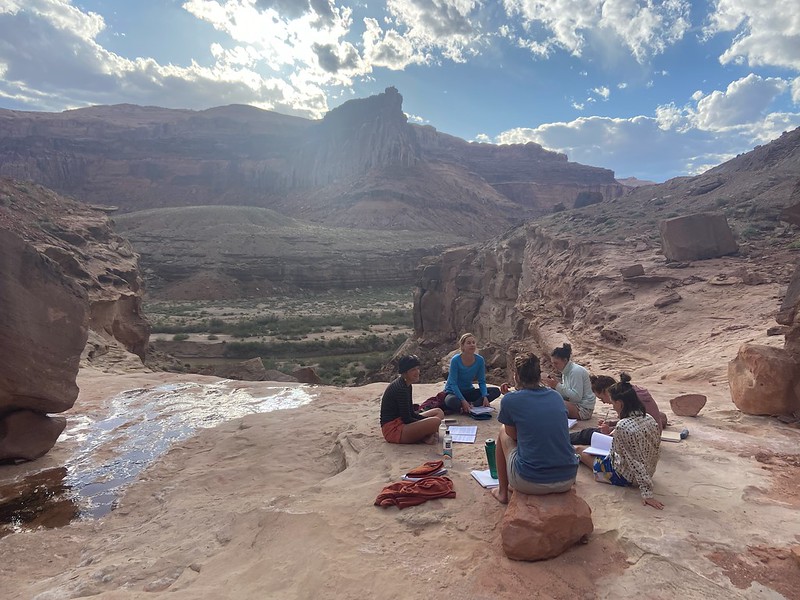
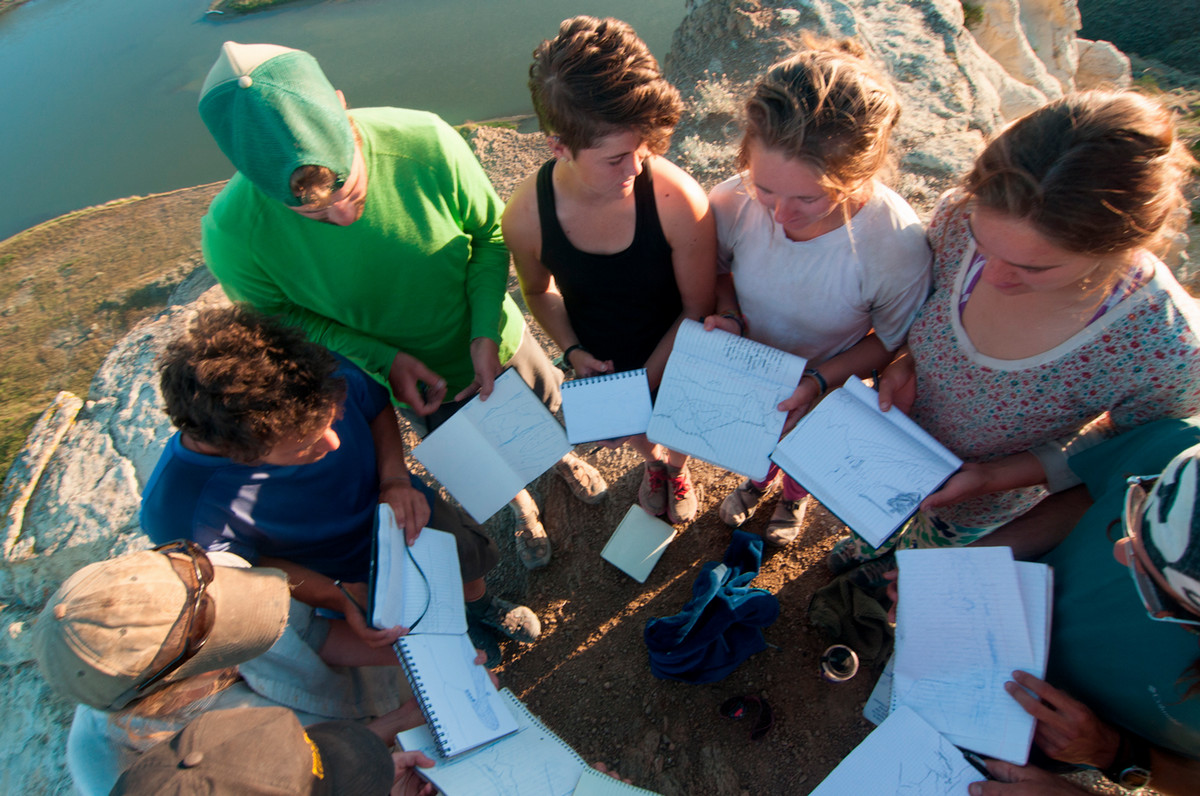
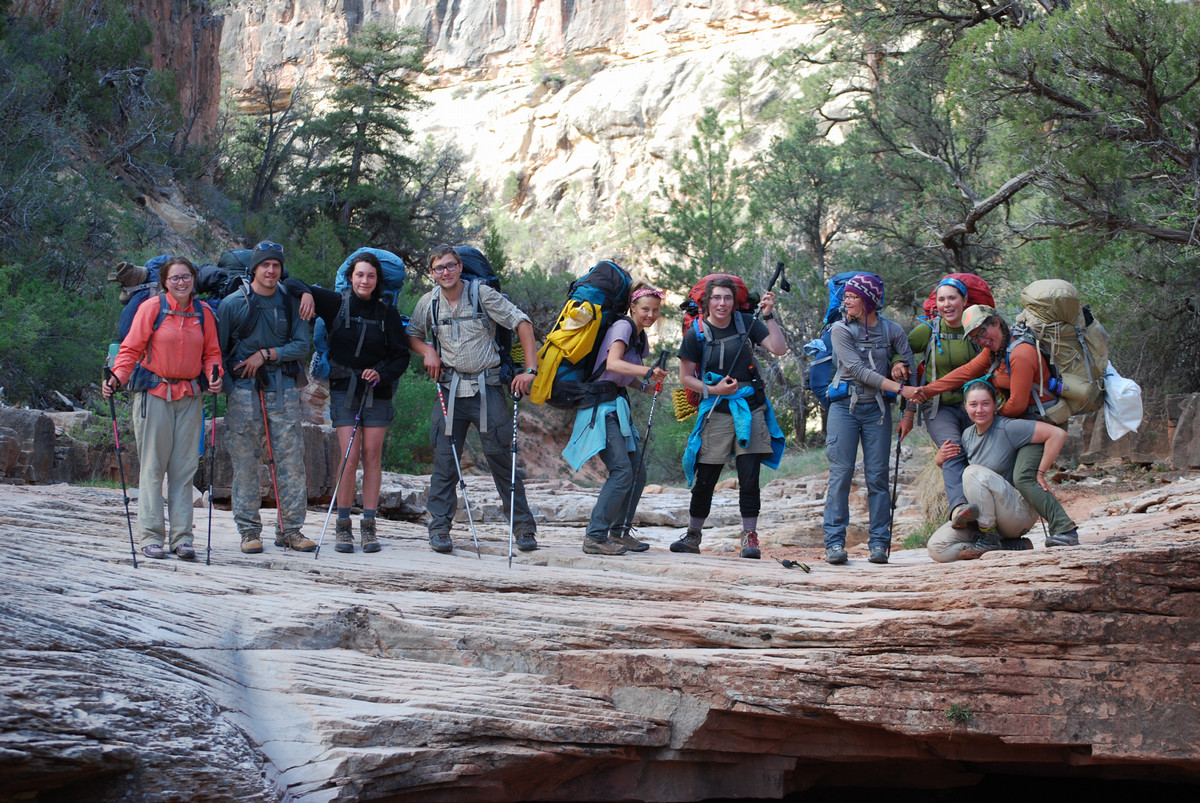
The Wilderness and Civilization program is an interdisciplinary, experiential academic semester grounded in field-based learning and interactive classroom courses. Offered each fall, it is the only program in Montana where students earn a Wilderness Studies minor.
Experience the ecology, land management, and natural and human history of some of the most beautiful landscapes in the lower 48.
• Examine human-wilderness relationships through study in policy, ecology, arts, and literature.
• Learn backcountry travel and expedition planning skills, including wilderness medicine and Leave No Trace training.
• Explore Montana's wildlands during a backpacking trip, a river trip, and 1-2 day field trips.
• All coursework for the minor must be completed in its entirety during a single fall semester. Unlike other minors, Wilderness & Civilization cannot be completed by taking a course or two each semester.
• Each cohort is limited to 25 students, ensuring close interaction with faculty and peers.
• Program fee is $450 in addition to normal University tuition.
Learn more about the The Wilderness and Civilization Program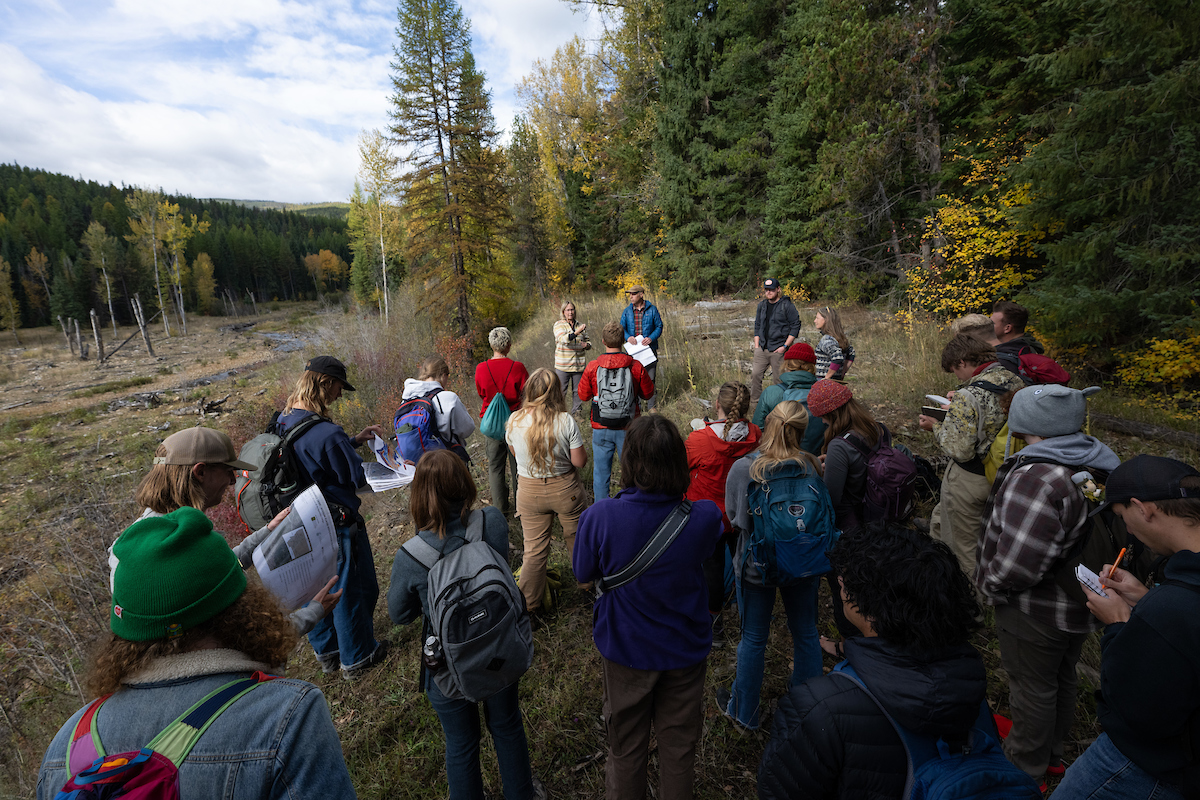
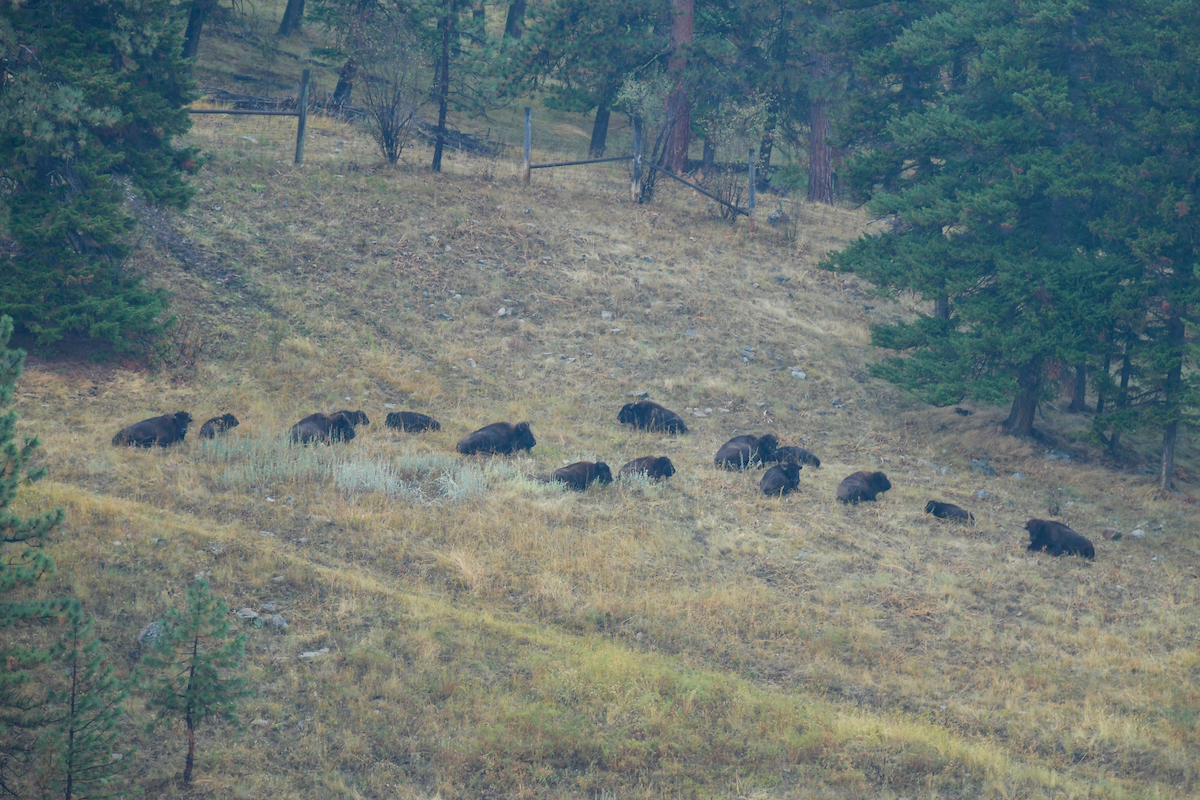
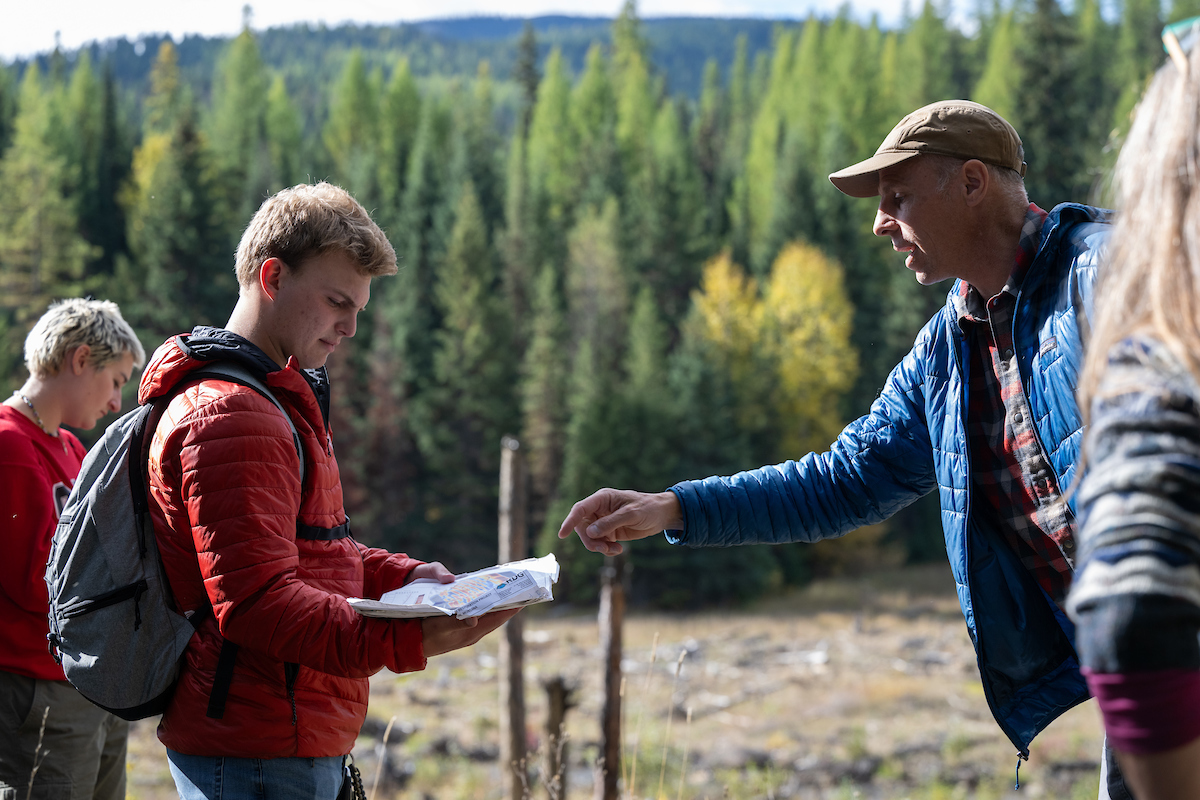
INTERNSHIPS
Because the Davidson Honors College is committed to student engagement in learning, we offer the opportunity for students to earn credit for internship opportunities by collaborating with a mentor in developing an academic plan to augment the internship experience. Any DHC student in good academic standing may design an academic internship course for a variable 2-or 3-credit experience. Students will register for either HONR 198, 398, or 498 or an internship course in their major during the term of their internship. We permit students with summer internships to register for credit and turn in assignments to the faculty mentor in the fall following the internship experience. The mentor must be willing to evaluate and grade the student’s work, and the student must complete any assignments discussed with the mentor (such as reading, writing, fieldwork, research, or community service) to earn credit. Your mentor will provide the discipline-specific criteria necessary for your work. Generally, it is a good idea to devise coursework that will complement or supplement the material covered in a regular course, major, intended profession, as well as the internship experience.
- The Honors Experiential Learning Opportunity Approval Form should be completed by you with support and approval from the mentor and will include a description of the proposed project. The completed form should be submitted no later than the end of the third week of the semester (different deadlines for summer sessions).
- The online form will ask for your information, your mentor's information, and a 300-400-word description of the work you propose. Be sure that the description includes learning objectives, specific assignments, and the requirements for completion. If you have a project title, please include it. The description should include any scheduled meetings and due dates for materials as discussed between mentor and student.
- If the proposed mentor for the internship course is not a tenured or tenure-track faculty member at The University of Montana, then a department chair’s approval is required. The department chair’s approval certifies that the mentor is appropriately qualified to supervise the proposed Honors internship credit. The DHC will request approval when necessary, however, it is your responsibility to speak to both the mentor and department chair prior to submitting the form.
- When completing the form, select the appropriate HONR level to complement your existing course. For example, if you are a freshman or sophomore and the internship is an entry-level position, select the HONR 198 option, if you are more advanced in credits and are generally taking 300-level courses, then the 398 or 498 would be better options.
- Once the Honors Experiential Learning Opportunity Approval Form has been submitted a DHC staff member will email you with registration information. The Honors internship course must be taken for a traditional letter grade.
- At the end of the semester (fall semester for most summer internships), the DHC will contact the mentor to request the grade. The letter grade will then be recorded through CyberBear. If the internship coursework has not been completed by the end of the semester, the mentor should still submit an appropriate letter grade (either “I” incomplete or “N” in progress), to be followed by a final grade when the work is complete.
Are you interested in completing an internship for an honors experience? Follow these steps! |
|
Step 1: Review the Submittable Form Visit dhc.submittable.com and review the "Honors Experiential Learning Opportunity Approval Form." Identify and meet with a UM faculty mentor in your discipline about your internship plans. Note: if your internship takes place during the summer, most students will register for credit in the fall semester following their internship. |
|
Step 2: Meet with Your Mentor Start a conversation with your faculty mentor about your intended learning objectives (what you will be graded on) and deliverables of your internship. You will co-construct these with your faculty mentor/internship supervisor. Please note that your internship supervisor must be able to give you a traditional letter grade and that the internship should be for 2 or 3 credits (100-150 hours total). |
|
Step 3: Fill out the Submittable Form Students should ask their advisors whether their department requires a major-specific internship. This affects which course you will register for and put on Submittable form -- either a HONR X98, or MAJOR X98. Either way, you can be eligible for an honors experience. |
|
Step 4: DHC Gives an Override Submission of the form will prompt DHC staff to either issue an override (if taking HONR credits) or enter a petition in Degree Works (if registering for an internship in another department/college). You will receive an email via Submittable and then register for the appropriate course in the correct semester. |
|
Step 5: Complete Your Internship The student will complete their internship under the guidance of their internship supervisor and UM faculty mentor. Options for internship assignments may include journal entries, readings, or reflections. |
|
Step 6: DHC Requests a Grade At the end of the semester in which you are registered for credit, the DHC will reach out to your UM faculty mentor and ask for your grade. This letter grade will be based on your completion of the agreed-upon learning objectives. If the internship coursework has not been completed by the end of the semester, the mentor will submit an "I" incomplete or "N" in progress to be followed by a final grade once the work is complete. |
|
Step 7: Complete DHC Reflection Each student will submit a 2-3 page reflection, "Honors Experiential Learning Reflection" to the DHC elaborating upon your internship experience and its connection to your other educational and professional goals. This is due before the end of the semester in which you are registered for credits. More details can be found on Submittable. |
- Think critically. Identify, evaluate, and integrate available information and arguments; develop logical and reasonable positions across a wide range of issues.
- Communicate. Express ideas and arguments through oral and written strategies; develop strong listening skills.
- Collaborate. Contribute to, and lead if necessary, a diverse team in pursuit of a shared goal.
- Solve problems. Employ rigorous quantitative and/or qualitative analysis to identify informed solutions to complex challenges.
- Design and execute an original project. From initiation to manifestation and public presentation.
- Act ethically. Make decisions based on the University of Montana’s four guiding principles: innovation and creativity, openness, partnership, and impact.
- Engage as a citizen. Strengthen commitment to meaningful service and community.
NATIONAL STUDENT EXCHANGE
Want to study at another US college while paying tuition and fees to UM? The National Student Exchange (NSE) has a program for you! NSE is an intercollegiate, study-away program, that allows undergraduate students to study at 170+ member colleges and universities in the US, Canada, Puerto Rico or Guam for the price of UM tuition and fees, or in-state tuition in the state of the University you choose to attend.
Learn more about the National Student Exchange
STUDENT TEACHING
This capstone experience marks an important milestone in the passage from student to professional educator. This practicum provides teacher candidates the opportunity to put into practice the skills learned during coursework and previous field experiences. The end results should be that the candidate gains opportunities to grow into an effective classroom teacher and that the students in the involved classroom benefit from the infusion of new ideas and strategies. The Office of Clinical Experiences secures classroom teachers and university supervisors to work with UM candidates during the student teaching semester.
STUDY ABROAD
The Davidson Honors College encourages students to study abroad. A study abroad can satisfy the honors experiential learning requirement. Students interested in studying abroad should begin by exploring the Global Engagement Office’s website.
The DHC offers a limited number of course-based study abroad experiences which rotate annually. Past trips include:
- Climate Change Studies’ to Vietnam
- Communication Studies’ on food and family to Spain and Portugal
- Communication Studies’ strengths and virtues to Spain and Portugal
- UM Humanities and Sciences Honors Classics’ trip to Greece
- DHC Teaching Research and Mentoring Fellow-led trip to Ireland
The DHC does an annual call for scholarships each spring semester for funding for summer and the following academic year. Scholarship applications open in February with applications due mid-March. Students will receive the link to apply in the Need-to-Know Newsletter.
If funding is available, there will be a smaller experiential learning scholarship call in the fall semester for funding for the following spring semester. Applications will be due mid-October. This is a great opportunity for students who are studying abroad in the spring semester only.
We encourage all students to fill out the UM general scholarship application and check any apply-to awards in the UM Scholarships Portal.
UNDERGRADUATE RESEARCH AND CREATIVE SCHOLARSHIP
No matter your field of study or interests, there are opportunities to connect with world-class research and creative faculty mentors and contribute something new to your field as an undergraduate at UM. As Montana's flagship university and an R1 top-tier research university, research and creative scholarship are integral to campus culture.
The Office of Undergraduate Research (OUR@UM) enriches and supports undergraduate research across the disciplines at the University of Montana, taking an expansive view of research that encompasses scholarly and creative work in STEM, arts, humanities, and professional schools. We provide advising and support for all phases of your research journey, from first connecting with a faculty mentor to sharing your final work.
Learn more about Undergraduate Research and Creative Scholarship
Honors Experiential Learning Reflection
For Internships:
Each student will submit a 2-3 page reflection to the DHC elaborating on your internship experience and its connection to your other honors courses/experiences. The reflection is due before the end of the semester in which you complete your internship.
Your reflection should include a thoughtful examination of how you have met your learning objectives through your honors internship and how this connects to your future goals and objectives.
For Study Abroad:
Each student will submit a 2-3 page reflection to the DHC elaborating on your study abroad experience and its connection to your other honors courses/experiences and your future goals. The reflection is due before the end of the semester in which you complete your study abroad.
Your reflection should include a thoughtful examination of what you have learned about yourself, the country in which you were studying, how this contributes to your academic journey, and how you will apply what you've learned in the future.
For Independent Study/Research:
Each student will submit a 2-3 page reflection to the DHC elaborating on your experience and its connection to your other honors courses/experiences and your future goals. The reflection is due before the end of the semester in which you are enrolled in credits.
Your reflection should include a thoughtful examination of what you have learned about yourself through this experience, how this contributes to your academic journey, and how you will apply what you've learned in the future.
